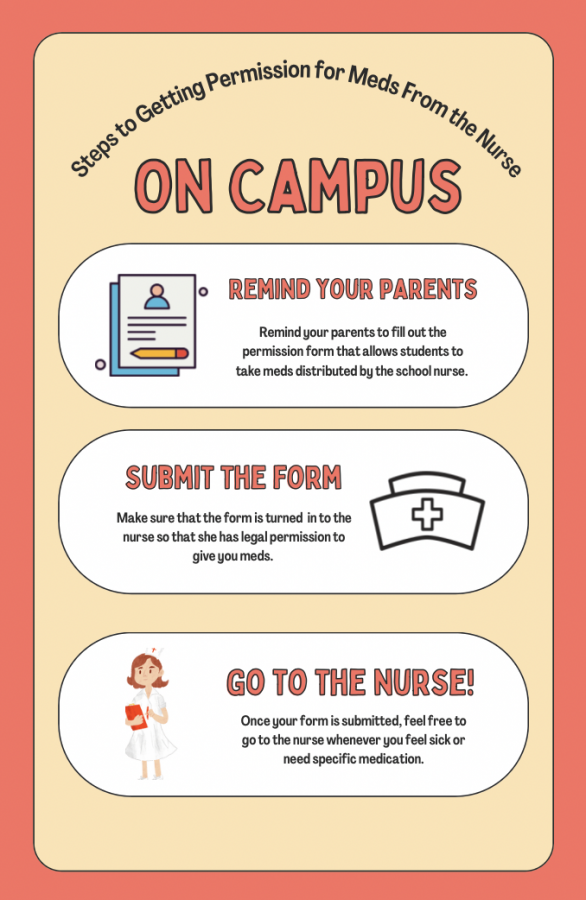Need Tylenol? Get Your Form In!

Credit: Charlotte Feehan
For many students in the Hackley community, being denied non-prescription medication by the nurse, like Advil and ibuprofen, is a frequent and common annoyance. Though it might seem pointless, and in some cases even painful, a school nurse’s obligation not to freely dispense medication is backed by both science and practical law.
In some cases, ingesting commonplace over-the-counter drugs can lead to harmful, and even life threatening situations. According to Fort Behavioral Health, when used in proper amounts and according to the directions, over-the-counter (OTC) drugs can be helpful in pain relief and pose little to no health risks. However, when such medication is consumed in large doses accidentally, or to achieve a sort of “high,” it can be extremely reactive and dangerous.
Cough and cold medications that contain antitussive dextromethorphan (cough suppressant) are a more popularly abused OTC drug, and unfortunately a more unpredictable one. Commonly referred to as DXM, dextromethorphan when taken in large quantities at frequent doses, can induce both psychoactive and psychedelic effects on the user. Side effects of DXM overdose can include, hot flashes and sweating, nausea, vomiting, lack of coordination, panic attacks, and slurred speech. Long term effects of cough medicine abuse involve liver damage, brain damage, and emotional/psychological issues.
The school nurse, Shannon Smith, explained to The Dial how this affects her approach to distributing medication:
“It depends on the dosage you’re ingesting, and how often you’re ingesting,” she said, “If I can see that and track it, then I can make sure everything is going fine. You never know if that medication is going to interact with something that you’re taking. Some kids might take a cold medicine without realizing that it has Tylenol or ibuprofen in the cold medicine, and then take an extra dose, which then affects the liver.”
According to Smith, because of the potential dangers posed by allowing all students to carry medication, “New York Law states that, for any child to have medication in school, that it needs a doctor’s order and a parent’s signature. So there’s a form that I send home, and that’s legally how it’s done.
Parents and guardians are encouraged to fill out the permission form multiple times throughout the year, and they are the ones students should focus on if they want access to medications at school. Despite the seeming simplicity of this solution, Nurse Shannon said, “For the first round I send out around 850 forms, that’s for the whole school. Then, when you’re reminded to turn in your physical, it’s attached to that as well. If someone comes to me and they don’t have one on file, I send one home too.”
Regarding the number of times times the form is typically sent before a response, she said, “If I send the form out five times, it usually comes back after the fifth time. It’s difficult, it’s not easy for me to get.”
Perhaps if students were more involved in the process of returning the medication permission form, parents and guardians would be more receptive when it comes to filling it out in the first place.
“This is the first time I’ve even heard of the form. I know my parents are always on top of this stuff so usually they sign most forms. Maybe if students played a role in reminding their parents to fill out medication forms, this would solve the problem,” junior Tommy Troso said.








